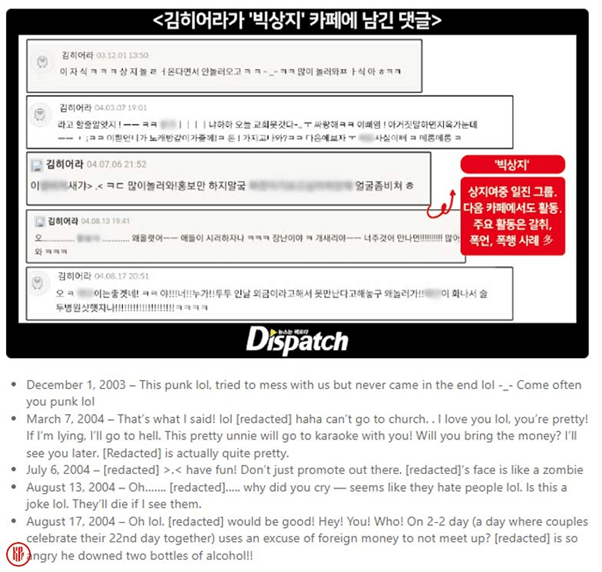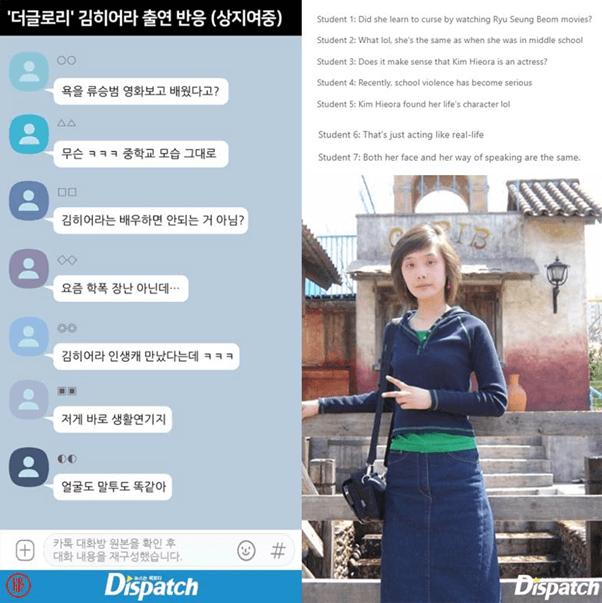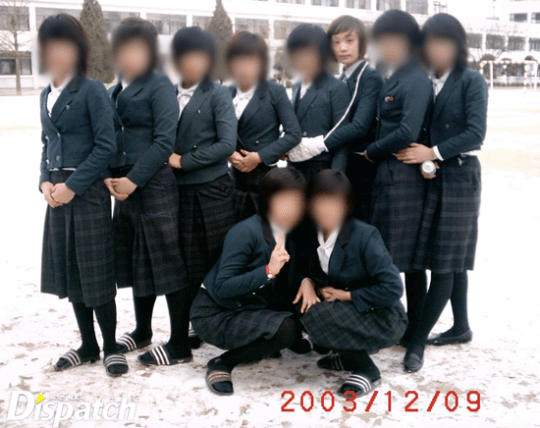A mom packs lunch, dresses up her child, and sends them to school with all her love, trusting the authorities with the apple of her eye. A parent believes that a school is one institution where they can send their child alone, besides under their surveillance. Legally, the school is responsible for a child’s welfare within its premises.
But what if the same institution becomes your child’s worst nightmare? The rampant bullying cases in South Korea have tarnished the country’s education system. Many students have dropped out in the middle of the academic year, citing the unbearable torture.
One might wonder why the school has not resolved these cases. Here lies the root of the problem– class disparity and social hierarchy are the critical factors in determining whether the students are liable for their actions.
Even though this conduct is entirely wrong, this has become a sad reality for many victims. To add salt to the wound, the perpetrators are roaming free and also integrated into high positions in reputed professions without anybody knowing about their cruel past.
One such case has recently surfaced, exhibiting the paradox of humanity– An actress praised for her portrayal of a bully is accused of being an actual bully in high school.
On September 6, Dispatch released an expose on actress Kim Hieora, who plays a bully/druggie in the critically acclaimed and hit series, The Glory. The report suggests that Hieora was involved in a school gang, Big Sanji of Sanji Girls’ Middle School in Wonju, Gangwon, notorious for blackmail, assault, and verbal attacks. However, Kim Hieora has denied her direct involvement in bullying and maintained that she was just a bystander.
Kim Hieora’s School Controversy Explained
Kim Hieora, born on March 18, 1989, attended the S Girls’ Middle School in Wonju, Gangwon.
There are two categories of students in a school– those who fit in or can be put in the studious, athletic, or popular boxes. And the rest are considered “outcasts.” This category is usually targeted for bullying.
It’s not that the student prefers this lifestyle. They are just expressing themselves differently. They are typically perceived as meek, quiet, and recluse and often belong to financially weaker families. In reality, they just prefer not to be confined to any boxes, but society projects their beliefs onto them.
And then, the boxed students want to assert their superiority, targeting those they deem weaker and vulnerable.
Allegedly, Hieora was desperate to be included among the cliques to avoid being a target. She conveniently joined the “Big Sanji” gang that had a reputation for bullying.
The actress claims that since she is pretty pale with brown eyes and has a unique name, she could easily have been the target. So, to avoid bringing negative attention to her, she decided to side with the perpetrators. She said that she was just looking out for herself.
Here are the significant testimonies (interviewed by Dispatch) from anonymous victims–
“At the school, there was a group named Big Sangji. They took money from people and gave it to the oldest in the group. They would yell at you and hit you if you didn’t have money. Kim Hieora was in this group too.”
[former student B of Sangji Girls’ Middle School].
“The online community (Big Sangji) was just for bullies.
They would suddenly ask us for money and use it to buy cigarettes and alcohol and sing at karaoke. Also, they used the money to buy gifts for their boyfriends.
They wouldn’t stop bothering you if you didn’t give them the money.”
[former student C of Sangji Girls’ Middle School].

Did ‘The Glory’ Actress Kim Hieora Suffer Her Bullying?
Kim Hieora first gained recognition for her portrayal of a North Korean mother who has to go to prison in South Korea, leaving her young daughter in the hit show Extraordinary Attorney Woo. She became an overnight sensation with just one episode.
She also appeared in several other big shows, including Hospital Playlist, Bad And Crazy, Beyond Evil, and recently, The Uncanny Counter 2. But it wasn’t until The Glory that Hieora became a household name.
Dispatch revealed the Big Sangji Chatroom messages after Kim Hieora was cast as Sara– the school bully in The Glory.

These exhibit that Hieora was involved in bullying in some capacity.
However, the actress did not deny that she was a part of the group but also maintained that she was just a bystander and never really participated in the antics. She released an official statement–
“Yeah, I wasn’t a good student in middle school. I did mess around a bit.
But Big Sangji wasn’t a bullying gang. Having an online group with your friends was awesome back then, and Big Sangji was the name of our online group. It wasn’t some secret club for bullies.
I may have been hanging around with Big Sangji. At the time, the older kids would hit me for no reason, but I had never hit my friends or the younger kids.
The 9th graders would suddenly ask for 100,000 won. We were short on time, so the 8th graders collected 50,000 won, and another 50,000 won from the 7th graders.
I admit I watched all this happen, and I’m truly sorry for that.
Still, I never took part in yelling at people or hitting them. So, why did they mention my name? Was I standing next to them? Was I walking by them? I never started any of these.
Maybe I didn’t think it was a big deal because it was younger kids who were getting bullied. Looking back, I see that standing by and doing nothing was a big mistake for me.”

She also claims that she tried to warn her friend against bullying–
“She was a friend who hung around with me a lot. I think she found out about my family’s situation and wanted to help. I never asked her to do anything, but nobody believed me.
Doing community service was an eye-opener for me. It hit me that I’d been living in a way that made people not trust me. I realized I hadn’t been building trust with others.”
How Severe Is Bullying in Korea? Is School Violence a Problem in Korea?
Some of the incidents in The Glory series are a rendition of actual events. The severity of the rising cases has become a national concern, with an exponential increase since 2013, recording 11,749 cases. And that number doubled in 2019, with over 31,130 cases reported in a year.
About 50% of reported cases pertained to physical violence, whereas the rest included verbal abuse, detention, extortion, coercion, threatening, and sexual violence.
This rise can be attributed to the lack of proper consequences for the actions–
As per the stats between 2016-2019–
- In 29.25% of the cases (73,912), they were asked to only write an apology in writing.
- 46,194 cases were “reformed” by ordering them special education or psychotherapy treatment.
- 37373 perpetrators were given community service.
- The worst possible scenario was either transfer, which was 7895 cases (3.12%), or expelled, which was 625 cases (0.25%).
Also, because the juvenile laws in the Korean judiciary aren’t as strict, these brats think they are untouchable. Moreover, their names are never made public. So, you best believe they are working regular jobs while concealing their horrendous deeds.
Over the last few years, several Korean celebrities were exposed to bullying, including actors, TV hosts, and K-pop idols. Most of them were canceled or removed from their respective projects. There seems to be a slight reformation, but there is still a long way to go on the grassroots level.
What are your thoughts on this case? Do you believe Hieora’s claims? Or is she guilty of bullying even if she says she was just a bystander?
Let us know in the comments section below.
Source: Dispatch

